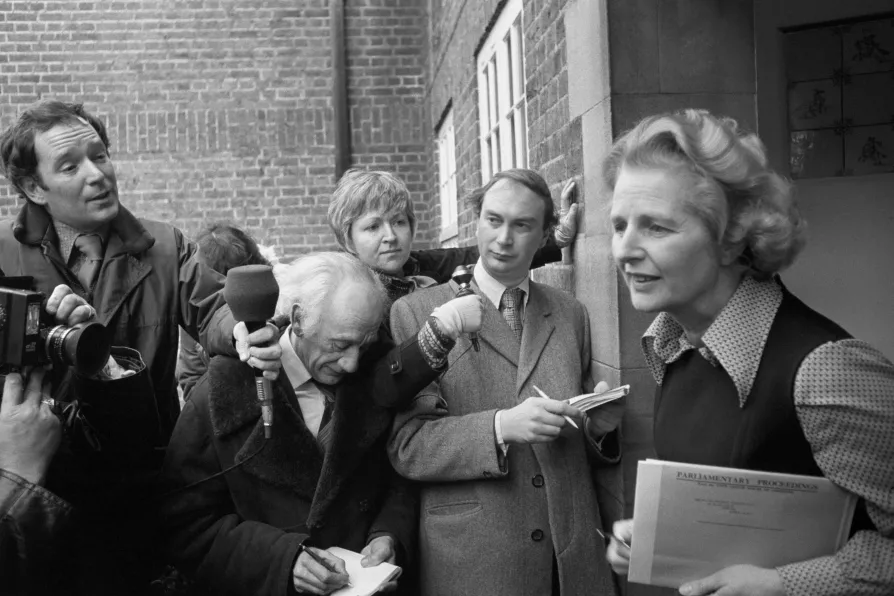The US-Israeli strikes against Iran are part of a decades-long war against the Islamic Republic which has refused to bow to US demands that it surrender its sovereignty, argues VIJAY PRASHAD

 EVEN FURTHER RIGHT: Margaret Thatcher
meets the press outside her Chelsea home
after her leadership victory in 1975
EVEN FURTHER RIGHT: Margaret Thatcher
meets the press outside her Chelsea home
after her leadership victory in 1975
IT’S 50 YEARS since Margaret Thatcher was elected Tory leader. Ted Heath had lost two elections to Labour in February and October 1974 and was eventually forced to call a leadership election in February 1975. He lost in the first round of voting on February 4 to a right-wing outsider — Thatcher. In the second ballot she got a majority of all Tory MPs over four other middle-aged white men in suits and became Tory leader. Just over four years later in May 1979 she became prime minister.
The 50th anniversary has already been marked by a two-part recreation of an interview Brian Walden did with her in 1989. An opera written by social historian Dominic Sandbrook is due later this year.
Thatcher’s victory was unexpected, not least because she represented a rightward shift in Tory politics — even if anyone active in the early 1970s in the labour movement would have thought Heath with his hard line anti-union stance was quite right-wing enough.

KEITH FLETT traces how the ‘world’s most successful political party’ has imploded since Thatcher’s fall, from nine leaders in 30 years to losing all 16 English councils, with Reform UK symbolically capturing Peel’s birthplace, Tamworth — but the beast is not dead yet

KEITH FLETT revisits the 1978 origins of Britain’s May Day bank holiday — from Michael Foot’s triumph to Thatcher’s reluctant acceptance — as Starmer’s government dodges calls to expand our working-class celebrations












